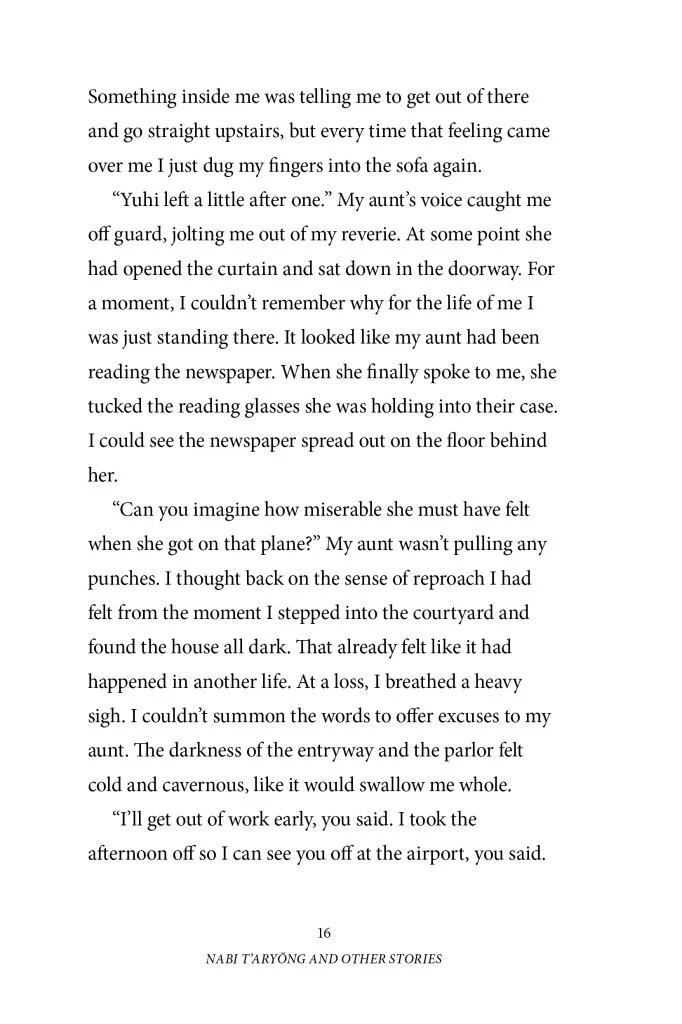 Image 1 of 2
Image 1 of 2

 Image 2 of 2
Image 2 of 2



Korean Diaspora Literature) Nabi T'aryong and Other Stories
ISBN 9781624121517
Language English
N. of Pages 440쪽
Size/Weight 140 * 210 * 30 mm / 589 g
Author/Editor Lee Yangji
Publisher Seoul Selection
Date of Publication 2022년 12월 26일
Country of Origin Korea
ISBN 9781624121517
Language English
N. of Pages 440쪽
Size/Weight 140 * 210 * 30 mm / 589 g
Author/Editor Lee Yangji
Publisher Seoul Selection
Date of Publication 2022년 12월 26일
Country of Origin Korea
ISBN 9781624121517
Language English
N. of Pages 440쪽
Size/Weight 140 * 210 * 30 mm / 589 g
Author/Editor Lee Yangji
Publisher Seoul Selection
Date of Publication 2022년 12월 26일
Country of Origin Korea
<KR>
책 소개
정체성을 찾기 위해 고군분투하는 재일동포 여성
그녀가 "우리나라"라고 말할 때, 한국과 일본 중 어느 나라를 의미할까요? 이양지의 단편 소설 "유히"와 "나비타리 ǒng"은 한국과 일본 모두에서 낯선 존재로 여겨지는 재일동포들의 고뇌와 내면의 갈등을 묘사합니다.
'유히'는 시조 주인공이 자신의 뿌리를 찾아 한국으로 떠나는 이야기를 담고 있으며, '나비 ǒ'의 주인공 아이코도 마찬가지입니다. 두 여성 모두 자신이 한국인도 일본인도 될 수 없는 소외된 존재라는 사실을 깨닫고 좌절감을 느낍니다.
두 작품은 작가가 2세 자이니치로서 자신의 정체성과 양면성을 찾기 위해 고뇌했던 흔적을 생생하게 보여줍니다. 이러한 자전적 이야기를 통해 그녀는 개인적인 문제를 통해 민족 정체성과 언어의 영역을 훌륭하게 탐구합니다.
포함된 작품들
나비 타령 (나비 타령, 1982)
다이버 (카즈키메, 1983)
내 동생, 나보다 먼저 사라지다 (Anigoze, 1983)
유히 (유히, 1988)
<ENG>
About the book
An Ethnic Korean Woman in Japan Struggles to Find Her Identity
When she utters “our country,” which does she mean, Korea or Japan? Lee Yang-ji’s short stories “Yuhi” and “Nabi T’aryǒng” portray the agony and inner conflict of Zainichi (ethnic Koreans residing in Japan) who find themselves considered strangers both in Korea and Japan.
“Yuhi” features the eponymous protagonist going to Korea in search of her roots as does Aiko, the main character of “Nabi T’aryǒng.” Both women grow frustrated after realizing that they are considered marginal persons who can be neither Korean nor Japanese.
The two works vividly show traces of the writer’s agonizing search for her identity and feelings of ambivalence as a second-generation Zainichi. Through these autobiographical stories, she uses her personal problems to brilliantly explore the realm of ethnic identity and language.
Included Works
Nabi T’aryŏng (Nabi taryon, 1982)
The Diver (Kazukime, 1983)
My Brother, Gone Before Me (Anigoze, 1983)
Yuhi (Yuhi, 1988)
<FR>
À propos du livre
Une Coréenne de souche au Japon lutte pour trouver son identité
Quand elle prononce "notre pays", que veut-elle dire, la Corée ou le Japon ? Les nouvelles de Lee Yang-ji "Yuhi" et "Nabi T'ary ǒng" illustrent l'agonie et le conflit intérieur de Zainichi (Coréens de souche résidant au Japon) qui se trouvent considérés comme des étrangers en Corée et au Japon.
"Yuhi" présente la protagoniste éponyme allant en Corée à la recherche de ses racines, tout comme Aiko, le personnage principal de "Nabi T'ary ǒng". Les deux femmes deviennent frustrées après avoir réalisé qu'elles sont considérées comme des marginales qui ne peuvent être ni coréennes ni japonaises.
Les deux œuvres montrent de façon éclatante les traces de la recherche agonisante de l'écrivain pour son identité et son sentiment d'ambivalence en tant que Zainichi de deuxième génération. À travers ces histoires autobiographiques, elle se sert de ses problèmes personnels pour explorer brillamment le domaine de l'identité ethnique et de la langue.
Travaux inclus
Nabi T'aryŏngng (Nabitaryon, 1982)
Le plongeur (Kazukime, 1983)
Mon frère, parti avant moi (Anigoze, 1983)
Yuhi (Yuhi, 1988)
Table of Contents
Yuhi
The Diver
My Brother, Gone Before Me
Nabi T’aryǒng: A Mourning Butterfly






















































